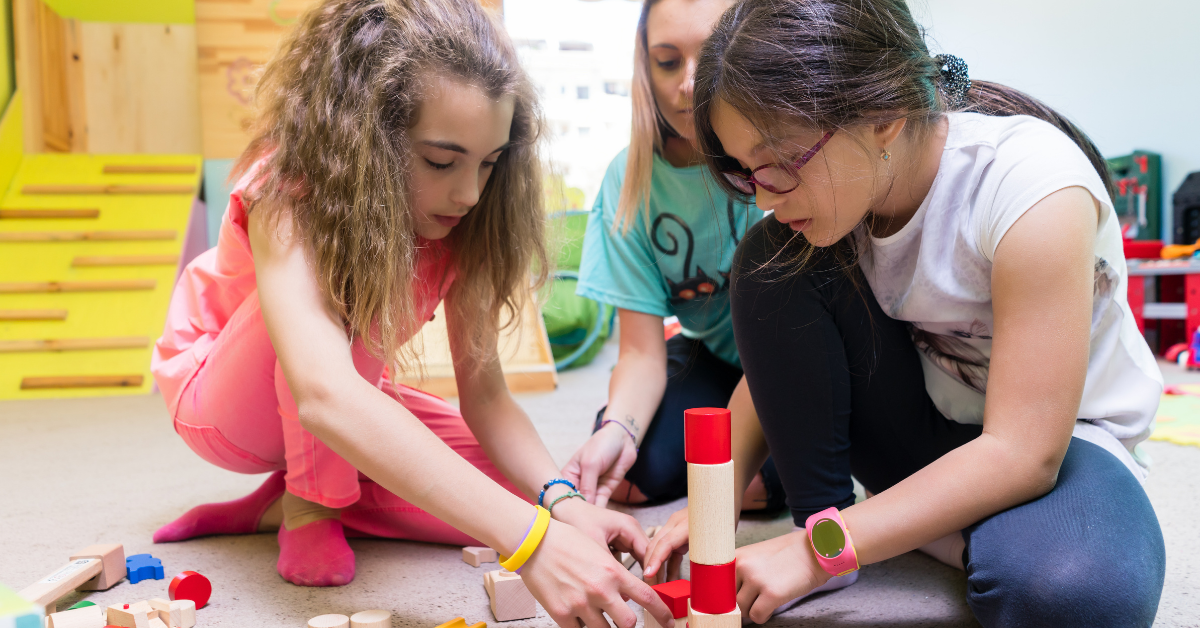Did you know that 1 in 5 children in the US has a learning difference? Children with learning differences, such as dyslexia or attention deficit hyperactivity disorder (ADHD), can be acutely aware of these differences. If children can leverage this awareness into self-advocacy, they can take charge of their learning and find success in and out of the classroom.
But what is self-advocacy, and how can you help a child with learning differences incorporate this essential tool? Keep reading to learn all about ways to help children incorporate this valuable skill into their daily lives.
What is Self-Advocacy?
Self-advocacy is important for all children, but for children who may learn a little differently than the norm, it can be a crucial ingredient for success not just in school, but in life.
A child who understands their strengths and weaknesses and knows how to communicate what they need to learn is using self-advocacy. They aren't reliant on an adult to make their needs known; they are able to do that on their own.
Start at the Beginning
From a young age, children can be guided in growing their self-advocacy skills. This can be done at home, at school, at the playground. There's no shortage of opportunities for children to start learning to do for themselves.
Encourage young children to use their words. If they want something, teach them not only to ask for it but to explain why. For example: "Could I have the red block? I need it to finish my castle."
They can also practice using their words to handle various situations they may encounter, such as when a peer is making them feel uncomfortable or they want to share their opinion in a group project. Role-playing these situations at home can give your kids tools to use when facing them for real.
Let your child know you believe they can do things on their own, such as dressing, cleaning up, or doing simple chores. They may ask for assistance, but you will bolster their confidence if you insist you know they can complete whatever task is at hand and give them praise when they do.

The Later Elementary Years
By the time a child reaches 4th or 5th grade, they can begin to be even more of an advocate for themselves. They should be aware of what their learning differences are, and they should be starting to figure out what best helps them to learn.
Children can talk about what's easy about school and what's more challenging and help develop ideas about what can be done when learning is challenging. The benefits of this are huge. They will see that they are part of a team and that the whole team exists to support them.
Practicing a growth mindset through social-emotional learning can be particularly helpful at this age. A child with learning differences can be taught that, with practice, they can learn to do whatever they set their mind to. Hard work and persistence can make even the most difficult task achievable.
Having someone to relate to can be powerful as well, so have a conversation with your child about people they may look up to who have also struggled with learning differences. Influential figures like Celine Dion, Nikolai Tesla, and many more all have learning differences.
Middle School Challenges
Middle school can be tough for everyone. For students who have learning differences, middle school can be even tougher. However, there are ways to help your child navigate these tricky years with confidence.
If your child has an Individualized Education Plan (IEP), they should be involved in the process of building and implementing this plan. By taking an active role in the plan for their personalized learning, a child can know exactly what accommodations should be given to them and by who. They can then be encouraged to speak up if something isn't happening or something isn't working.
Even if a child was confident and self-assured in elementary school, this can change in middle school. It's vital to keep the lines of communication open. Talk to your kids about how school is going. What's easy? What's hard? How are they getting along with their classmates and teachers?
If there's a problem, talk through it and help them come up with ideas to solve the problem. It's important for your middle-schooler to know you're always on their side and there to help.
Remember that even though your middle-schooler may struggle with learning, there are other areas in which they might excel. Maybe they want to get involved with sports, take an art class, or participate in the school play. Identifying their preferred learning style and taking part in activities that play to their strengths may help them have more confidence to face more challenging tasks.
For All Ages
While there are certain self-advocacy skills that require more maturity than others, there are things you can do at any age to put them on the right path to being masters at advocating for themselves.
Practice positivity. If you are positive about your child's abilities, they will pick up on that. Assure them that it's good to be different. Modeling a positive attitude will help your child learn to see the positives in their own lives.
Be open. Discuss your child's learning differences and what they mean in terms of how they learn and grow. Your children will take your lead.
If you aren't ashamed of their learning differences, they won't be. If you speak openly about their learning differences, they will learn to do the same.
Help them connect. If there are other children with learning differences in your neighborhood or in your child's school, introduce them. There's strength in numbers.
It will mean a lot to your child to know they're not alone, and this may give them the strength to speak up for themselves.

Successful Self-Advocacy
As children move through elementary school and into middle school, they are doing a whole lot of growing. Their physical growth will come on its own, but their skills in self-advocacy will need to be nurtured and grown, then the sky's the limit on what they can achieve.
About Eagle Hill School
Eagle Hill School is a private school for students with learning differences located in Greenwich, Connecticut. Their academic program is designed to help students struggling with learning differences like auditory processing disorder, dyscalculia, dyslexia, ADHD, executive functioning disorder, and dysgraphia. Specialized remedial learning programs are taught by experienced teachers who help students navigate through learning challenges, preparing them for bright futures ahead. Contact us to learn more.


